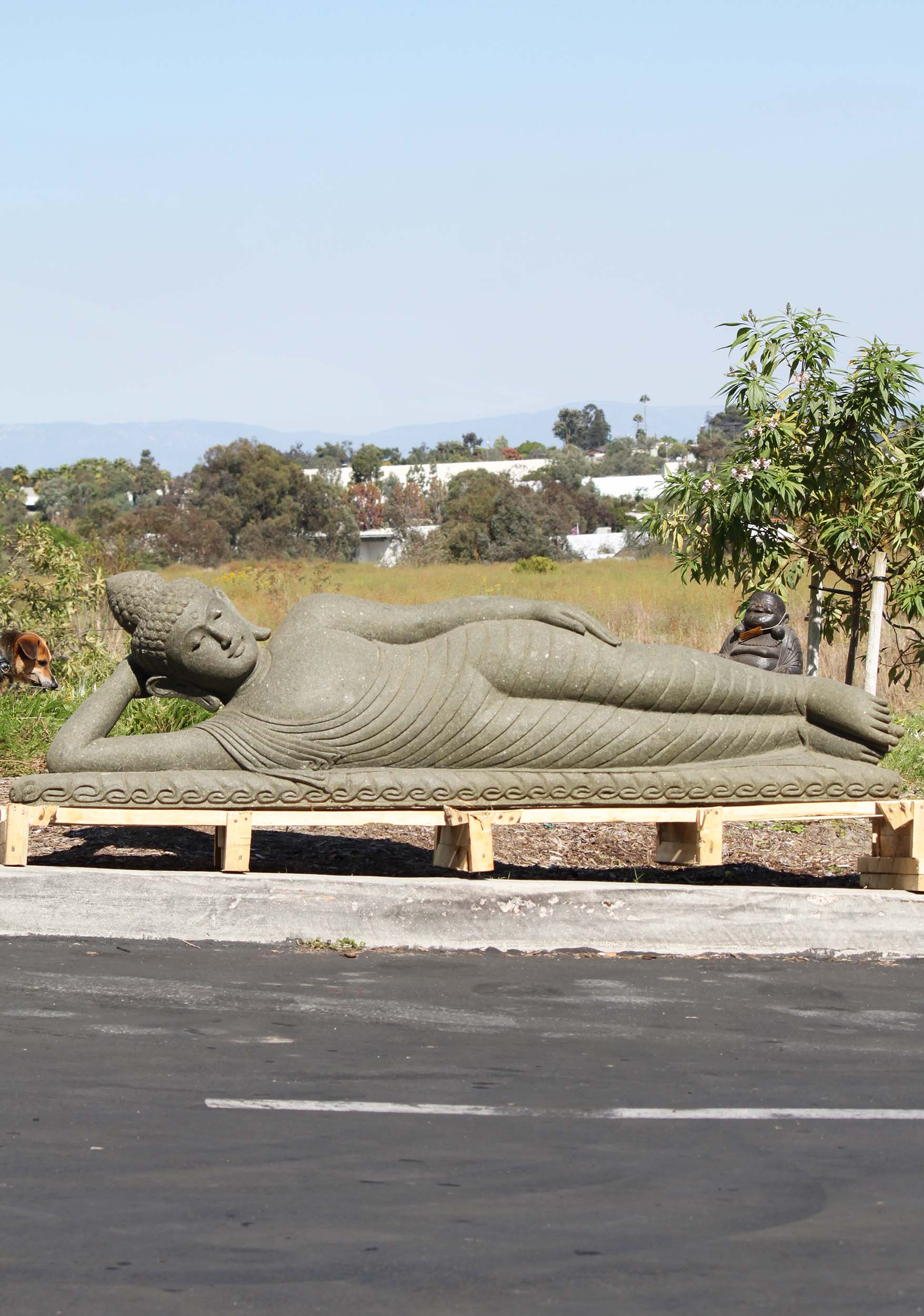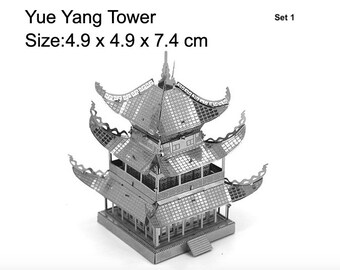Free Online FOOD for MIND & HUNGER - DO GOOD 😊 PURIFY MIND.To live like free birds 🐦 🦢 🦅 grow fruits 🍍 🍊 🥑 🥭 🍇 🍌 🍎 🍉 🍒 🍑 🥝 vegetables 🥦 🥕 🥗 🥬 🥔 🍆 🥜 🎃 🫑 🍅🍜 🧅 🍄 🍝 🥗 🥒 🌽 🍏 🫑 🌳 🍓 🍊 🥥 🌵 🍈 🌰 🇧🇧 🫐 🍅 🍐 🫒Plants 🌱in pots 🪴 along with Meditative Mindful Swimming 🏊♂️ to Attain NIBBĀNA the Eternal Bliss.
Kushinara NIBBĀNA Bhumi Pagoda White Home, Puniya Bhumi Bengaluru, Prabuddha Bharat International.
05/31/20
LESSON 3341 Tue 2 Jun 2020
Free Online Analytical Insight Net for Discovery of Metteyya Awakened One with Awareness Universe ( FOAINDMAOAU)
For
The Welfare, Happiness, Peace of All Sentient and Non-Sentient Beings and for them to Attain Eternal Peace as Final Goal.
From
KUSHINARA NIBBANA BHUMI PAGODA
in 116 CLASSICAL LANGUAGES
Through
At
WHITE HOME
668, 5A main Road, 8th Cross, HAL III Stage,
Puniya Bhumi Bengaluru
Magadhi Karnataka State
PRABUDDHA BHARAT
Words of the Metteyya Awakened One with Awareness
Free Online step by step creation of Virtual tour in 3D Circle-Vision 360° for Kushinara Nibbana Bhumi Pagoda
https://tenor.com/view/lord-buddha-spin-gif-12312257



https://www.lotussculpture.com/Reclining-Buddha-Garden-Sculpture.html

 https://tenor.com/view/lord-buddha-gif-10942845
https://tenor.com/view/lord-buddha-gif-10942845

https://tenor.com/view/lord-buddha-gif-10985454


https://tenor.com/view/lord-buddha-gif-10799670


https://tenor.com/view/jai-brim-buddha-tiger-gif-12261874

Free Online step by step creation of Virtual tour in 3D Circle-Vision 360° for Kushinara Nibbana Bhumi Pagoda
Through
At
WHITE HOME
668, 5A main Road, 8th Cross, HAL III Stage,
Puniya Bhumi Bengaluru
Magadhi Karnataka State
PRABUDDHA BHARAT
https://tenor.com/view/%E1%80%99%E1%80%82%E1%81%A4%E1%80%9C%E1%80%AC%E1%80%95%E1%80%ABbuddha-sky-temple-gif-16089698

https://www.youtube.com/watch?v=K9AZrnYhbqc
Bagan Buddha Temple in Virtual Reality
Bagan was the capital of The Kingdom of Pagan, which unified the area of modern-day Myanmar and ruled from the 9th to 13th century. During this time, over 10…
https://giphy.com/gifs/games-online-3oEhmGgRW9AMzkqbnO

https://en.wikipedia.org/wiki/Shanti_Stupa,_Pokhara
 Statue of Metteyya Awakened One with Awareness
Statue of Metteyya Awakened One with Awareness Metteyya Awakened One with Awareness Statue at Shanti Stupa
Metteyya Awakened One with Awareness Statue at Shanti Stupa World Peace Pagoda / Shanti Stupa Pokhara
World Peace Pagoda / Shanti Stupa Pokhara Fewa Lake and Himalayan Range seen from the Stupa
Fewa Lake and Himalayan Range seen from the Stupahttps://www.revir.co/
-
It is a 18 feet Dia All White Pagoda with may be a table or, but be sure to having above head level based on the usual use of the room.
-
 The White Pagoda’s Age up choice picture
The White Pagoda’s Age up choice picture Photo of the real White Pagoda in Beihai Park in Beijing
Photo of the real White Pagoda in Beihai Park in Beijing The White Pagoda as it appears in-game
The White Pagoda as it appears in-game -
https://www.etsy.com/market/miniature_pagoda
-





 https://www.pagoda.com/necklaces/diamond-necklaces/c/2428674?loadMore=1
https://www.pagoda.com/necklaces/diamond-necklaces/c/2428674?loadMore=1




 https://www.homedepot.com/b/Outdoors-Patio-Furniture-Patio-Umbrellas/11-ft/N-5yc1vZccgwZ1z18wlk
https://www.homedepot.com/b/Outdoors-Patio-Furniture-Patio-Umbrellas/11-ft/N-5yc1vZccgwZ1z18wlk 


Stand supports the white statue of the Metteyya Awakened One with Awareness. A simple start is a steel stand with three levels. This is the main surface of the Pagoda, so you may want to put some effort into this.
Place the Matteyya Awakened One with Awareness
onto the Pagoda.
You can have as many as you like. This will go on the topmost level of
the Pagoda. It is considered ‘bad etiquette’ to place the Matteyya Awakened One with Awareness lower than any other image in the same Pagoda.
In the place of an image of Buddha, a mantra written on a piece of
paper or similar is perfectly acceptable, and preferred in the Jōdo Shinshū (Pure Land) tradition of Buddhism and in Nichiren
Buddhism. Some buddhist schools recommend certain standardized
arrangements of images for their lay members, in Japan often as
triptychs with the main Buddha surrounded by either bodhisattvas, dharma
guardians or lineage masters. This is not necessary, even after
Japanese standards, and Chinese-Taiwanese Buddhism is usually less
standardized when it comes to home shrines.
4
If a suitable Buddha image simply cannot be obtained, a picture of Buddha’s relics, a stūpa , a Buddhist holy book, a bodhi leaf or picture of the Buddha’s footprints may be acceptable.
5
On the next level, you may place an image of a Buddhist teacher like the Dalai Lama or a small statue of the Chinese Bùdài (the Laughing Buddha, considered to be a manifestation of Buddha Maitreya.)
Two guardian images may be an idea to consider: Either the ‘lion-dogs’
common at the entrance of South Asian monasteries or two
dharmapalas/vidyarajas you feel familiar with (Chinese, Japanese and
Tibetan Buddhists doesn’t use exactly the same palas, and for persons
into Tibetan Buddhism or Shingon there may be reasons to choose
carefully).
Two guardian images may be an idea to consider: Either the ‘lion-dogs’
common at the entrance of South Asian monasteries or two
dharmapalas/vidyarajas you feel familiar with (Chinese, Japanese and
Tibetan Buddhists doesn’t use exactly the same palas, and for persons
into Tibetan Buddhism or Shingon there may be reasons to choose
carefully).
6
Place offerings on the lowest level or, if you wish, a Buddhist scripture or a bowl of water. Some find a bell or singing bowl on a cushion useful.[3]
7
Traditional offerings include candles, flowers, incense, fruit or food. However, it is not what you offer that is important: it is that it is done sincerely with a pure heart.[4]
Since Buddhist monastics aren’t allowed to eat after lunchtime, food,
fruit and dairy offerings traditionally – and for symbolic reasons –
occur in the morning or shortly before lunchtime. Offerings of water,
non-dairy beverages, candles, flowers and incense may, however, occur at
other times of the day.
Since Buddhist monastics aren’t allowed to eat after lunchtime, food,
fruit and dairy offerings traditionally – and for symbolic reasons –
occur in the morning or shortly before lunchtime. Offerings of water,
non-dairy beverages, candles, flowers and incense may, however, occur at
other times of the day.
8
Place a small stūpa on the supporting surface of the shrine, if you wish. You can make a simple stūpa with a small pile of stones. There is no need to go out and buy a costly gold one; that defeats the purpose of Buddhism.
9
It is traditional to change the offering water every morning, however, the old water should never go to waste.
Use it to water a plant or something. A new cup or bowl should be used
for this purpose: glass or crystal is preferable, because the clarity of
the water represents clarity of the mind. Some Buddhist schools use two
water bowls: ‘drinking’ water and ‘washing’ water. It is far from wrong
to let flowers remain even after withering has begun: The flowers serve
to remind you of impermanence.
Use it to water a plant or something. A new cup or bowl should be used
for this purpose: glass or crystal is preferable, because the clarity of
the water represents clarity of the mind. Some Buddhist schools use two
water bowls: ‘drinking’ water and ‘washing’ water. It is far from wrong
to let flowers remain even after withering has begun: The flowers serve
to remind you of impermanence.
10
If you wish, you may offer incense at the shrine when you recite morning ceremony. Touch the tip to your forehead, then light it. See warning.
Community Q&A
-
QuestionWhich would best time in the Morning Offering water before Sunshine?Community AnswerThe exact time (i.e., 4am or
6:30am) are not what’s important. One should wake up early enough to
have time to think about the purpose of one’s life. When you wake up
try to think that I have been in meditation and that your Lama (or the
Dalai Lama or Amitabha, Tara or any Bodhidattva) is seated on a lotus on
the crown of your head. Think that today I will pray to help all
sentient beings even if it is just by being kind, compassionate and
generous to those with whom I come in contact. Then rise and go to your
shrine. You could light a stick of incense and think; To the Buddha,
Dharma and Sangha, I make this offering. Then continue by offering your
seven (or 1 or 2 . . .) water bowls, etc -
QuestionThe statue I got is holding an empty bowl. Is there anything that I am supposed to put in this bowl?Max ThundermanCommunity AnswerIt’s your choice whether you want to put anything in there or not, but usually it’s left clean/empty.
-
QuestionCan I use a picture of Buddha instead of a statue for the top of my shrine?Community AnswerYes, that is absolutely fine. If
you’d like, you could write “BUDDHA” on a piece of crumpled-up loose
leaf paper; you’d still be fine. It really does not matter what the
shrine looks like, but rather what it is about for you. -
QuestionIs it wrong to have shelves with books and items underneath my shrine?Community AnswerNo, that’s not wrong, but it might be a nice idea to try to focus the books and items on your pursuit of Dharma.
-
QuestionMust I always pray in the morning?Community AnswerIt depends on what kind of Buddhist you are, but a short “om mani padme hum” is traditional.
-
QuestionFor how long should a food offering be left
on the shrine at home? How should the food offering be discarded? Can
anyone eat a food offering?Community AnswerLeave it for a few hours. Do not
let it go bad! Food can be offered to guests, animals, the hungry or
just offered to Buddhahood and eaten. It is sinful to discard food.
Anyone can eat the food. Before a meal you offer the food to the Buddha,
then you eat it. The principle is the same for altars and everything
else. -
QuestionCan I use other flowers instead of a lotus?Community AnswerYes. Flowers symbolize the causes,
while fruits symbolize the effects. They play a part in reminding
practitioners of the truth of cause and effect, which most refer to as
Karma. -
QuestionCan I continue to present my offerings to the shrine and meditate regularly when I am having my menstrual period?
-
QuestionCan I use a picture of the buddha instead of a statue?
-
QuestionWhat do the three statues in front of Buddha represent?Community AnswerThey represent the past Buddha, present Buddha and the next Buddha.
Ask a Question
Video
Tips
-
Yellow, white, orange, red, and blue are recommended colours of decoration.
-
Everything on the shrine also has a symbolic meaning. Flowers and fruit for example illustrate the law of karma.
-
What matters is sincerity, not the shrine itself. It would be
better if you didn’t have a shrine and were very sincere in cultivating
virtue than if you had a shrine and wasted time going through the
formalities of making it look pretty. -
Some Buddhists is to have cushions near their shrine to sit on
while meditating. Decorated Indian cushion covers are favoured
considerably. Some prefer a meditation stool or a tightly stuffed zafu. -
The supporting surface of the shrine isn’t really something that you must put a lot of effort into.
-
You should set aside a symbolic day once a month or so to clean
the shrine of dust, and perhaps once a year to clean it thoroughly. In
East Asia the days before new moon is a widespread shrine cleaning time. -
If you are unable to create levels, make sure any statues of
Buddha are not directly on the floor because this can be thought
disrespectful.[5]
Warnings
-
If you do intend on burning incense or candles, consider the flammability of the covering of the shrine.
-
Candles and incense should never be allowed to burn unattended. Consider electric candles or lamps.
-
Avoid cheap, low-quality incense. It is generally manufactured
in Asia where safety standards are comparatively low and can contain
unsafe chemicals.
Things You’ll Need
- A Buddha or Bodhisattva image or statue.
- A water bowl
- Flowers/incense/fruit/electric candles.
- A photograph or image of your own Buddhist teacher, if you have one.
- A selection of small stones
References
- The Art of Lovingkindness, by Ven. Master Chin Kung and Ven. Wu Ling.
- The Buddha Book, by Lillian Too.
-
↑ https://www.thebuddhagarden.
com/where-to-place-buddha- statue.html -
↑ https://www.thebuddhagarden.
com/where-to-place-buddha- statue.html -
↑ https://www.windhorse.co.uk/
setting-up-a-buddhist-shrine. html -
↑ https://www.shambhala.com/
snowlion_articles/making- offerings-how-and-why/ -
↑ https://www.knowingbuddha.org/
dos-and-donts
youtube.com/watch?v=0YsPRt
NX CAD - Surfacing - PROLIM PLM Lunch Bytes
PROLIM
Welcome to another edition of the PROLIM PLM Lunch Bytes series. Our topic we cover in this edition is surfacing in NX CAD.
Learn more: prolim.com/software/nx-cad
View Training available:
NX CAD - Surfacing - PROLIM PLM Lunch Bytes
PROLIM
Welcome to another edition of the PROLIM PLM Lunch Bytes series. Our topic we cover in this edition is surfacing in NX CAD.
Learn more: prolim.com/software/nx-cad
View Training available:
NX CAD - Surfacing - PROLIM PLM Lunch Bytes
Welcome to another edition of the PROLIM PLM Lunch Bytes series. Our topic we cover in this edition is surfacing in NX CAD. Learn more: https://www.prolim.co…
Join 7,440,000 engineers with over 4,250,000 free CAD files Join the Community
NX Unigraphics×
February 6th, 2020
Fuel injector
ICE TRAY
NX Unigraphics
corner braces
NX Unigraphics
KTM Duke-390 Radiator Safety Grill
NX Unigraphics 10
Wheel #3
NX Unigraphics 7.5, PTC Creo Elements, SOLIDWORKS 2008, SOLIDWORKS 2017, SOLIDWORKS 2009, STEP / IGES, Other
THOR HAMER
NX Unigraphics 10
QUALITY LOGO
NX Unigraphics 10
SUPERMAN
NX Unigraphics 10
DIAMOND
NX Unigraphics 10
czy to juz koniec?
NX Unigraphics 7.5, PTC Creo Elements, SOLIDWORKS 2017, SOLIDWORKS 2008, SOLIDWORKS 2009, STEP / IGES, Other
RADIAL ENGINE
NX Unigraphics 10
holder
NX Unigraphics
shaper tool head components and assembly
NX Unigraphics 10
Raspberry pi Multi position
NX Unigraphics 10, Rendering
Wheel #2
NX Unigraphics 10, Parasolid, STEP / IGES, Rendering
ASHOK JCB bUCKET
January 27th, 2020
Pattanachari nilayam plan 4
NX Unigraphics 10, STEP / IGES
motorbike engine block/блок цили́ндров двигателя мотоцикла/ Bloc motor pentru motociclete.
NX Unigraphics, Rendering

NX Unigraphics×
Fuel injector

NX Unigraphics
corner braces

NX Unigraphics
KTM Duke-390 Radiator Safety Grill
 ICE TRAY
ICE TRAY
NX Unigraphics 10
Wheel #3




NX Unigraphics 10
QUALITY LOGO


NX Unigraphics 7.5,
THOR HAMER

NX Unigraphics 10
SUPERMAN

NX Unigraphics 10
DIAMOND





NX Unigraphics 10, Rendering
Wheel #2
NX12 is Now Available for Download
NX 12.0.0 is available on the
following platforms; Windows 64-Bit, Linux 64-Bit, and Mac OS 64-Bit.
Please refer to the Release Notes for specific Operating System
requirements.
following platforms; Windows 64-Bit, Linux 64-Bit, and Mac OS 64-Bit.
Please refer to the Release Notes for specific Operating System
requirements.
Homechevron_rightBlogchevron_rightNX12 is Now Available for Download
Download Information
NX 12.0.0 is available on the
following platforms; Windows 64-Bit, Linux 64-Bit, and Mac OS 64-Bit.
Please refer to the Release Notes for specific Operating System
requirements.
following platforms; Windows 64-Bit, Linux 64-Bit, and Mac OS 64-Bit.
Please refer to the Release Notes for specific Operating System
requirements.
Please use the following steps to download the NX 12.0.0 Full Product Release. Note: A valid WebKey account is required.
In your browser’s address field enter the URL: https://download.industrysoftware.automation. siemens.com/
WebKey Username:
WebKey Password:
Select the “NX” product on the left hand side
Expand “Full products”
Expand the appropriate
platform; Linux (64-bit), MacOS or Windows(64-bit) to see a list of
products and a link to the Documentation.
platform; Linux (64-bit), MacOS or Windows(64-bit) to see a list of
products and a link to the Documentation.
To download the NX 12.0.0 product:
Right click on the nx-12.0.0 product link
Select “Save Target As” or “Save Link As” to save the file to your local destination.
To download the NX 12.0.0 documentation:
Expand the “Documentation” link
Right click on the doc-12.0.0 documentation link
Select “Save Target As” or “Save Link As” to save the file to your local destination.
In all cases, please refer to the supplied README file for installation instructions.
Full details on NX 12.0.0 are available in the “What’s New” help topic:
or in the “NX 12.0.0 Release Notes”:
If you encounter any problems installing NX 12.0.0, contact us.
About NX 12.0.0
NX 12 removes barriers to
innovation and empowers engineers to quickly achieve optimal design
solutions by utilizing their full creative potential. This release
includes hundreds of end-user CAD enhancements that will increase your
productivity. One example is the simultaneous display of multiple
windows, which greatly improves concurrent working methods.
innovation and empowers engineers to quickly achieve optimal design
solutions by utilizing their full creative potential. This release
includes hundreds of end-user CAD enhancements that will increase your
productivity. One example is the simultaneous display of multiple
windows, which greatly improves concurrent working methods.
Building on major
enhancements introduced in NX 11, such as Convergent Modeling™, NX 12
delivers refined tools that support the generative design workflow by
allowing direct manipulation of scanned or optimized facet geometry. In
addition, our close integration with Mentor Graphics Capital unites
electrical, mechanical and control systems in a single integrated
platform. To support the increasing adoption of additive manufacturing,
this release combines advanced tools with traditional modeling methods
for designing lightweight parts, reinforcing the new capabilities with
custom design validation checkers that ensure manufacturability.
enhancements introduced in NX 11, such as Convergent Modeling™, NX 12
delivers refined tools that support the generative design workflow by
allowing direct manipulation of scanned or optimized facet geometry. In
addition, our close integration with Mentor Graphics Capital unites
electrical, mechanical and control systems in a single integrated
platform. To support the increasing adoption of additive manufacturing,
this release combines advanced tools with traditional modeling methods
for designing lightweight parts, reinforcing the new capabilities with
custom design validation checkers that ensure manufacturability.
Together, with topology
optimization, non-linear solutions, and hundreds of additional
enhancements in Simulation and Manufacturing, this new functionality
will bolster NX’s standing as the design tool of choice.
optimization, non-linear solutions, and hundreds of additional
enhancements in Simulation and Manufacturing, this new functionality
will bolster NX’s standing as the design tool of choice.
1 Comment. Leave new
sankarshana bk
Mar 31, 2020 4:01 am
good
Reply
Leave a Reply
Your email address will not be published. Required fields are marked *
Fill out this field
Siemens Documentation
…
Unigraphics Nx 10 Software With
4.5, 1.9K Ratings
download_button
Description
Read reviews, compare
customer ratings, see screenshots, and learn more about Unigraphics Nx
10 Software With. Download Unigraphics Nx 10 Software With for macOS
10.13.6 or later and enjoy it on your Mac.
customer ratings, see screenshots, and learn more about Unigraphics Nx
10 Software With. Download Unigraphics Nx 10 Software With for macOS
10.13.6 or later and enjoy it on your Mac.
What’s New
Dec 10, 2019
This update contains stability improvements and bug fixes
Ratings and Reviews
4.5 out of 5
1.9K Ratings
Tim27 ,
03/25/2020
Works fine!
I have used Unigraphics
Nx 10 Software With for years now, and have been impressed with its
features and versioning. Numerous upgrades to several editions exist,
and you don’t need to always go with the latest edition only, such as
with apps from the Apple Mac Store. What’s particularly great is the
scalability. Unigraphics Nx 10 Software With is a great allrounder and
finalizer tool, easy for beginners. Highly recommended.
Nx 10 Software With for years now, and have been impressed with its
features and versioning. Numerous upgrades to several editions exist,
and you don’t need to always go with the latest edition only, such as
with apps from the Apple Mac Store. What’s particularly great is the
scalability. Unigraphics Nx 10 Software With is a great allrounder and
finalizer tool, easy for beginners. Highly recommended.
CedricJason ,
03/21/2020
Great for Free
Unigraphics Nx 10
Software With is close to being perfect but software is just so WEIRD!
The developer obviously spends a lot of time adding good features, but
the this is not intuitive at all. The majority of new users will have a
hard time learning the basic features.
Software With is close to being perfect but software is just so WEIRD!
The developer obviously spends a lot of time adding good features, but
the this is not intuitive at all. The majority of new users will have a
hard time learning the basic features.
Regular-Warren ,
03/15/2020
Good design
Unigraphics Nx 10
Software With is UNBELIEVABLY good, easy to use, and well-integrated
with professional results. The app’s design is great, intuitive, and
lets you unleash your true creativity without having to know some of the
more arcane details of “coding” and such. HIGHLY recommend Unigraphics
Nx 10 Software With!
Software With is UNBELIEVABLY good, easy to use, and well-integrated
with professional results. The app’s design is great, intuitive, and
lets you unleash your true creativity without having to know some of the
more arcane details of “coding” and such. HIGHLY recommend Unigraphics
Nx 10 Software With!
Information
Size
129 MB
Category
Software
Compatibility
macOS 10.13.6 or later
Languages
English, Catalan, Chinese
(Hong Kong), Croatian, Czech, Danish, Dutch, Finnish, French, German,
Greek, Hungarian, Indonesian, Italian, Japanese, Korean, Malay,
Norwegian, Polish, Portuguese, Romanian, Russian, Simplified Chinese,
Slovak, Spanish, Swedish, Thai, Traditional Chinese, Turkish, Ukrainian,
Vietnamese
(Hong Kong), Croatian, Czech, Danish, Dutch, Finnish, French, German,
Greek, Hungarian, Indonesian, Italian, Japanese, Korean, Malay,
Norwegian, Polish, Portuguese, Romanian, Russian, Simplified Chinese,
Slovak, Spanish, Swedish, Thai, Traditional Chinese, Turkish, Ukrainian,
Vietnamese
Age Rating
4+
Copyright
© 2020 All rights reserved.
Price
Free
mouseopen.weebly.com
Unigraphics Nx 10 Software Free Download With Crack…
Free
Download Unigraphics Nx 8.5 Full Version DOWNLOAD (Mirror #1). Our
training videos on YouTube cover formulas, functions and VBA or
macros,Android, Visual studio,Java. Useful for beginners as…
Download Unigraphics Nx 8.5 Full Version DOWNLOAD (Mirror #1). Our
training videos on YouTube cover formulas, functions and VBA or
macros,Android, Visual studio,Java. Useful for beginners as…
Download Siemens NX 2020 | Version(Siemens PLM NX 12.0.1) | Full Version | 100% Guaranteed Working
Tech Insider
275 subscribers
Download Siemens NX IN 2020
Version(Siemens PLM NX 12.0.1)
Full Crack with Licence
100% Guaranteed Working
Please follow the same procedure for installation it will work
extract as shown in video
keep root directory as “C-DRIVE”
turn off antivirus for safer extraction and installation
also use typical type of setup
if installation window is not visible don’t worry
it’s getting installed in background
don’t try to reinstall…
do make sure to uninstall any previous version if installed.
watch full video for better understanding
Latest version of Siemens will be uploaded soon stay connected
…………………………………………………… ………………………… ………………………… …..
Download link: -
———————————————————— ——————-
Plz Subscribe
———————————————————— —————————— —————————–
download link for IDM :- https://crackingpatching.com/2019/08/ …
———————————————————— —————————— —————————–
Links to previous videos……..
———————————————–
Link to Adobe illustrator :- https://youtu.be/lgASj2VYH0A
Link to Ms office 2019|2016|2013 :- https://youtu.be/lHhUmYFr2_A
Link to IDM crack full version :- https://youtu.be/ETKZm7Dp-h8
———————————————————— —————————— ——————————
Link to my Instagram
————————————
Personal account :- https://instagram.com/bhushankshatriy …
Channel account :- https://instagram.com/_tech.insider_ ?…
———————————————————— —————————— —————————— -
Thank you for watching make sure to suscribe
Leave a like
and comment if any error seen
———————————————————— —————————— —————————— —
Category
Science & Technology
Applicants can now pay the prescribed RTI fee or Additional fee using their RuPay Card also.
Please
do not file RTI applications through this portal for the public
authorities under the State Governments, including Government of NCT
Delhi. If filed, the application would be returned, without refund of
amount.
do not file RTI applications through this portal for the public
authorities under the State Governments, including Government of NCT
Delhi. If filed, the application would be returned, without refund of
amount.
This
is a portal to file RTI applications/first appeals online along with
payment gateway. Payment can be made through internet banking of SBI,
debit/credit cards of Master/Visa and RuPay cards. Through this portal,
RTI applications/first appeals can be filed by Indian Citizens for all
Ministries/Departments and other Public Authorities of Central
Government. RTI applications/first appeals should not be filed for other
Public authorities under Central/State Govt. through this portal.
is a portal to file RTI applications/first appeals online along with
payment gateway. Payment can be made through internet banking of SBI,
debit/credit cards of Master/Visa and RuPay cards. Through this portal,
RTI applications/first appeals can be filed by Indian Citizens for all
Ministries/Departments and other Public Authorities of Central
Government. RTI applications/first appeals should not be filed for other
Public authorities under Central/State Govt. through this portal.
Please read instructions carefully while submitting request/appeal.
Login for Registered Users
(Note: User Registration is not mandatory)
rti logo
Username:
Password:
Forgot Password
Not Registered Yet ? Sign Up here
Help Desk : For any query or feedback related to this portal, Please contact at 011-24622461, during normal office hours
(9:00 AM to 5:30 PM, Monday to Friday except Public Holidays) or send an email to helprtionline-dopt[at]nic[dot]in
Last updated on 25-09-2018 :: 17:19:49
Home | National Portal of India | Complaint & Second Appeal to CIC | FAQ
Home
Indian Laws and Acts
RTI Act, 2005
Right to Information Act
RTI Information: What information can we get under RTI?
Right to Information Act
RTI Information: What information can we get under RTI?
Sanjeet Kumar
RTI Information: What information can be given under RTI
Many
of us think that we can ask everything from government under Right to
Information Act, 2005, but that is not correct. RTI Act, 2005 clearly
defines “information”, and puts some limitation on the type of
information we can ask. Thus, it is important to understand what is RTI
Information? What information can be given under RTI?
of us think that we can ask everything from government under Right to
Information Act, 2005, but that is not correct. RTI Act, 2005 clearly
defines “information”, and puts some limitation on the type of
information we can ask. Thus, it is important to understand what is RTI
Information? What information can be given under RTI?
Table of Contents
RTI Information: Definition of “Information” and “Right to Information” under RTI Act:
Definition of “Record” under RTI Act
Definition of “Right to Information” under RTI Act
RTI Information: Observation of Supreme Court on definition of “Information” and “Right to Information”:
RTI Information: Definition of “Information” and “Right to Information” under RTI Act:
Definition
of “Information” under RTI Act: As per Section 2(f), “information”
means any material in any form, including records, documents, memos,
e-mails, opinions, advices, press releases, circulars, orders, logbooks,
contracts, reports, papers, samples, models, data material held in any
electronic form and information relating to any private body which can
be accessed by a public authority under any other law for the time being
in force;
of “Information” under RTI Act: As per Section 2(f), “information”
means any material in any form, including records, documents, memos,
e-mails, opinions, advices, press releases, circulars, orders, logbooks,
contracts, reports, papers, samples, models, data material held in any
electronic form and information relating to any private body which can
be accessed by a public authority under any other law for the time being
in force;
Definition of “Record” under RTI Act
As per Section 2(i), “record” includes—
(a) any document, manuscript and file;
(b) any microfilm, microfiche and facsimile copy of a document;
(c) any reproduction of image or images embodied in such microfilm (whether enlarged or not); and
(d) any other material produced by a computer or any other device;
Definition of “Right to Information” under RTI Act
As
per Section 2(j), right to information” means the right to information
accessible under this Act which is held by or under the control of any
public authority and includes the right to-
per Section 2(j), right to information” means the right to information
accessible under this Act which is held by or under the control of any
public authority and includes the right to-
i) inspection of work, documents, records;
(ii) taking notes, extracts or certified copies of documents or records;
(iii) taking certified samples of material;
(iv)
obtaining information in the form of diskettes, floppies, tapes, video
cassettes or in any other electronic mode or through printouts where
such information is stored in a computer or in any other device;
obtaining information in the form of diskettes, floppies, tapes, video
cassettes or in any other electronic mode or through printouts where
such information is stored in a computer or in any other device;
Section 3: Right to Information: Subject to the provisions of this Act, all citizens shall have the right to information.
Thus,
it is clear from section 3 of the RTI Act that citizen can not get
every information but only those information that are in line with the
provisions of the RTI Act.
it is clear from section 3 of the RTI Act that citizen can not get
every information but only those information that are in line with the
provisions of the RTI Act.
RTI Information: Observation of Supreme Court on definition of “Information” and “Right to Information”:
Honorable Supreme Court took opportunity to interpret what is RTI Information? What information can be given under RTI?
Honorable
Supreme Court on Right to Information Act, 2005 in Civil Appeal No.6454
of 2011, arising out of SLP[C] No.7526/2009 in the case of Central
Board of Secondary Education & Anr. Vs Ajitya Bandopadhyay & Ors
clarified coverage of information with following observation:
Supreme Court on Right to Information Act, 2005 in Civil Appeal No.6454
of 2011, arising out of SLP[C] No.7526/2009 in the case of Central
Board of Secondary Education & Anr. Vs Ajitya Bandopadhyay & Ors
clarified coverage of information with following observation:
“At
this juncture, it is necessary to clear some misconceptions about the
RTI Act. The RTI Act provides access to all information that is
available and existing. This is clear from a combined reading of section
3 and the definitions of `information’ and `right to information’ under
clauses (f) and (j) of section 2 of the Act. If a public authority has
any information in the form of data or analyzed data, or abstracts, or
statistics, an applicant may access such information, subject to the
exemptions in section 8 of the Act. But where the information sought is
not a part of the record of a public authority, and where such
information is not required to be maintained under any law or the rules
or regulations of the public authority, the Act does not cast an
obligation upon the public authority, to collect or collate such non-
available information and then furnish it to an applicant. A public
authority is also not required to furnish information which require
drawing of inferences and/or making of assumptions. It is also not
required to provide `advice’ or `opinion’ to an applicant, nor required
to obtain and furnish any `opinion’ or `advice’ to an applicant. The
reference to `opinion’ or `advice’ in the definition of `information’
in section 2(f) of the Act, only refers to such material available in
the records of the public authority. Many public authorities have, as a
public relation exercise, provide advice, guidance and opinion to the
citizens. But that is purely voluntary and should not be confused with
any obligation under the RTI Act.”
this juncture, it is necessary to clear some misconceptions about the
RTI Act. The RTI Act provides access to all information that is
available and existing. This is clear from a combined reading of section
3 and the definitions of `information’ and `right to information’ under
clauses (f) and (j) of section 2 of the Act. If a public authority has
any information in the form of data or analyzed data, or abstracts, or
statistics, an applicant may access such information, subject to the
exemptions in section 8 of the Act. But where the information sought is
not a part of the record of a public authority, and where such
information is not required to be maintained under any law or the rules
or regulations of the public authority, the Act does not cast an
obligation upon the public authority, to collect or collate such non-
available information and then furnish it to an applicant. A public
authority is also not required to furnish information which require
drawing of inferences and/or making of assumptions. It is also not
required to provide `advice’ or `opinion’ to an applicant, nor required
to obtain and furnish any `opinion’ or `advice’ to an applicant. The
reference to `opinion’ or `advice’ in the definition of `information’
in section 2(f) of the Act, only refers to such material available in
the records of the public authority. Many public authorities have, as a
public relation exercise, provide advice, guidance and opinion to the
citizens. But that is purely voluntary and should not be confused with
any obligation under the RTI Act.”
Accordingly,
you can get all information, except information pertaining to section 8
& 9 of the RTI Act, from government that is available and existing.
I will clarify this further with examples:
you can get all information, except information pertaining to section 8
& 9 of the RTI Act, from government that is available and existing.
I will clarify this further with examples:
You can ask government to provide following information:
What is status of your Passport Application? What action has been taken on your application till date?
What is the status of your Income Tax Refund?
Certified copies of your Answer Sheet?
Expenditures in any government project?
Status and actions taken on your complaints submitted in government office, etc.
These documents are available with government. Thus, you have right to get these information.
But
you can’t ask government to provide information which requires drawing
of inferences and/or making of assumptions. For example:
you can’t ask government to provide information which requires drawing
of inferences and/or making of assumptions. For example:
What will be government actions if some tragedy happens ( if it has been not been documented)?
What will be government steps for empowering women after 5 years (if it has been not been documented)?
Such information requires making assumptions, and PIO is not bound to provide information that requires making assumptions.
The
above mentioned provisions of RTI Act, and observations of Supreme
Court clearly outline what is RTI Information? What information can be
given under RTI? If you still have doubts whether information required
by you can be sought under RTI Act or not, you can ask through comment
box.
above mentioned provisions of RTI Act, and observations of Supreme
Court clearly outline what is RTI Information? What information can be
given under RTI? If you still have doubts whether information required
by you can be sought under RTI Act or not, you can ask through comment
box.
If this article was helpful to you, please share using below buttons. Please Like us on Facebook at
https://www.facebook.com/PSKPedia/
.Please Click the buttons below to Share this Article with Friends:
WhatsApp
Telegram
Tweet
Save
Share
Print
Can Questions be asked under RTI Act? What/Why/How/When? Best AnswerIn “Right to Information Act”
RTI Complaint Format in English: Template for RTI Complaint under Section 18In “RTI Application Forms”
RTI Application Form for Inspection of Records: TemplateIn “RTI Application Forms”
Prev Article
Next Article
About The Author
Sanjeet Kumar
I
have passed my Bachelor of Engineering in Electronics and Communication
Engineering, and Master of Technology in Telecommunication from
National Institute of Technology Calicut. I have filed many RTI
Applications, First Appeals, Second Appeals, and Complaints. I have also
filed few Writ Petitions in High Court, and Supreme Court. At present, I
am General Secretary at Bharat Electronics Officers Association, and
General Secretary at Bharat Electronics Officers’ Club.
have passed my Bachelor of Engineering in Electronics and Communication
Engineering, and Master of Technology in Telecommunication from
National Institute of Technology Calicut. I have filed many RTI
Applications, First Appeals, Second Appeals, and Complaints. I have also
filed few Writ Petitions in High Court, and Supreme Court. At present, I
am General Secretary at Bharat Electronics Officers Association, and
General Secretary at Bharat Electronics Officers’ Club.
Copyright © 2013. All rights reserved. Designed, Developed and Hosted by National Informatics Centre, New Delhi
VOICE of ABORIGINAL AWAKENED VOICE
I
DONT CARE says Murderer of democratic institurtons (Modi) of BJP
(Bevakoof Jhoothe Psychopaths) who had resorted to fraudulent way of
tampering the electronic voting machines (EVMs) to Gobble the Master Key
BJP
and company had used the EVMs in 2014 itself to win the General
Election. Voters thought that it was the mandate against the
scams-ridden and scandals-tainted rule of Congress. But the election
results of the five states
held in March 2017 have exposed the EVM scandal of BJP.
DONT CARE says Murderer of democratic institurtons (Modi) of BJP
(Bevakoof Jhoothe Psychopaths) who had resorted to fraudulent way of
tampering the electronic voting machines (EVMs) to Gobble the Master Key
BJP
and company had used the EVMs in 2014 itself to win the General
Election. Voters thought that it was the mandate against the
scams-ridden and scandals-tainted rule of Congress. But the election
results of the five states
held in March 2017 have exposed the EVM scandal of BJP.
MODI
CARES TRUST gobbling lakhs of crores of Rupees fund is exclusively
meant for the Foreigners thrown out from Bene Israel, Tibet,Africa,
Eastern Europe, Western Germany, Northern Europe, South,Russia,Hungary,
etc.,chitpavan brahmins of RSS (Rowdy Rakshasa Swayam sevaks) which
raises funds through unaccounted tax free Guru Dhakshana is followed by
own mother’s flesh eaters, stooges, slaves and boot lickers who must be
forced to quit Prabuddha Bharat.
World Population
7,788,510,160
58,812,817Births this year
91,809Births today
24,691,029Deaths this year
38,543Deaths today
34,121,788Net population growth this year
53,266Net population growth today
Government & Economics
$ 3,604,069,338Public Healthcare expenditure today
$ 2,465,523,211Public Education expenditure today
$ 1,122,060,050Public Military expenditure today
33,027,653Cars produced this year
63,251,877Bicycles produced this year
105,136,806Computers produced this year
Society & Media
1,124,457New book titles published this year
113,940,644Newspapers circulated today
159,699TV sets sold worldwide today
1,553,535Cellular phones sold today
$ 69,616,187Money spent on videogames today
4,576,772,154Internet users in the world today
62,657,976,396Emails sent today
1,646,883Blog posts written today
185,867,109Tweets sent today
1,719,627,304Google searches today
Environment
2,183,254Forest loss this year (hectares)
2,939,251Land lost to soil erosion this year (ha)
15,177,297,848CO2 emissions this year (tons)
5,037,770Desertification this year (hectares)
4,110,979 Toxic chemicals released
in the environment this year (tons)
in the environment this year (tons)
Food
843,436,313Undernourished people in the world
1,694,062,637Overweight people in the world
757,934,672Obese people in the world
7,329People who died of hunger today
$ 138,334,677Money spent for obesity related
diseases in the USA today
diseases in the USA today
$ 45,303,894Money spent on weight loss
programs in the USA today
programs in the USA today
Water
1,829,419,851Water used this year (million L)
353,504Deaths caused by water related
diseases this year
diseases this year
800,670,250People with no access to
a safe drinking water source
a safe drinking water source
Energy
111,854,323Energy used today (MWh), of which:
95,216,716- from non-renewable sources (MWh)
16,844,286- from renewable sources (MWh)
700,884,747,691 Solar energy striking Earth today (MWh)
22,941,297Oil pumped today (barrels)
1,507,114,074,077Oil left (barrels)
15,717Days to the end of oil (~43 years)
1,095,593,280,556Natural Gas left (boe)
57,663Days to the end of natural gas
4,316,106,101,212Coal left (boe)
148,831Days to the end of coal
Health
5,449,530Communicable disease deaths this year
204,458Seasonal flu deaths this year
3,190,808Deaths of children under 5 this year
17,849,972Abortions this year
129,751Deaths of mothers during birth this year
41,834,853HIV/AIDS infected people
705,685Deaths caused by HIV/AIDS this year
3,447,662Deaths caused by cancer this year
411,760Deaths caused by malaria this year
3,627,494,392Cigarettes smoked today
2,098,519Deaths caused by smoking this year
1,049,922Deaths caused by alcohol this year
450,156Suicides this year
$ 167,934,483,619Money spent on illegal drugs this year
566,666Road traffic accident fatalities this year




